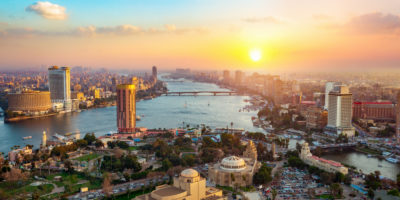-
Египет
Mergers and Acquisitions in Egypt | Legal, Financial & Regulatory Insights
14 мая 2025
- Корпоративный
- СЛИЯНИЯ И ПОГЛОЩЕНИЯ
- Налог
Summary: Egypt has emerged as one of the most promising M&A destinations in the MENA region, driven by regulatory reforms, macroeconomic stabilisation, and strategic regional partnerships. This first part of our two-part series provides foreign investors with a comprehensive overview of the legal framework, key investment sectors, and the evolving role of international players in Egypt’s M&A landscape. From recent legislative changes to foreign ownership liberalisation and high-profile cross-border deals, this article offers essential guidance for navigating Egypt’s increasingly attractive transaction environment.
Egypt’s Position as a M&A Hub
In recent years, Egypt has emerged as a leading investment hub in the MENA region, driven by economic reforms, infrastructure development, and a favourable investment climate. Its strategic location, large consumer market, and abundant natural resources have attracted domestic and foreign investors. The Egyptian government has supported this growth by amending laws, introducing new regulations, and streamlining business processes to boost foreign investment. In 2021, Egypt ranked second in M&A attractiveness after the U.S., with a 486% growth to USD 9.9 billion across 233 deals, according to an info graph from the cabinet’s Information and Decision Support Centre (IDSC).
Key Drivers of M&A Growth
Currently, Egypt is more than ready to host foreign investors. As time goes by, the authorities are constantly addressing any newly arising matters that have no governance from a legal standpoint. These regulatory reforms have reflected enormously on the country’s economic and corporate standings and resulted in its recent growth and emerging position of the Egyptian market compared to other relevant jurisdictions in the area, such as KSA and UAE, although it is a relatively smaller market.
The sectors with the highest growth rates are energy, TMT, healthcare, pharmaceuticals, consumer goods, finance, and banking.
Mergers Vs. Acquisitions
Although the terms merger and acquisition are often used interchangeably in the business world, there are key differences between them, as outlined below.
A Merger is an agreement where two companies combine to form a new entity, with the assets and liabilities of the seller transferred to the buyer. This process typically results in the dissolution of one company’s legal identity, integrating it into another to create a new legal entity. Mergers generally occur between companies of similar size or market scope, with goals to:
- Gain a larger market share.
- Reduce operational costs.
- Expand into new regions.
- Boost profitability for shareholders after the merger.
An Acquisition involves one company gaining control over another by acquiring shares, voting rights, or overall management control. Typically, a larger company buys a smaller one, becoming the dominant decision-maker. The acquiring company may:
- Purchase 100% of the target company’s shares, assets, and liabilities
- Acquire more than 50% of shares to gain controlling interest without full ownership
From a legal standpoint, in the context of an acquisition, the acquiring entity purchases a sufficient percentage of shares in the target company, granting it control, with the ownership stake potentially reaching up to 100%.
In contrast, a merger results in the complete transfer of assets and liabilities from the merged entity to the acquiring entity, leading to the removal of the merged entity from the commercial registry. However, in an acquisition, the target company remains registered, and its commercial record is not annulled.
Mergers, often between small and medium-sized companies, are a strategic move to form a powerful entity with technological and capital advancements. This helps them leverage global competition and achieve goals that they can’t accomplish alone, overcome existing challenges and sometimes even avoid bankruptcy.
Egypt As An M&A Destination
Egypt’s control of the Suez Canal positions it as a global trade hub, influencing investments in logistics, infrastructure, and energy. The canal facilitates trade between Europe, Africa, and Asia, enhancing its strategic importance. According to the FDI Report 2020, Egypt replaced South Africa as the second-ranked destination for FDI projects in the Middle East and Africa, experiencing a 60% increase in projects.
Egypt’s stability and military strength attract investors seeking to mitigate regional risks, while its integration into Africa’s growing economy and membership in the African Union make it a key hub for M&A activity, linking the Middle East and Africa.
The government has implemented a comprehensive economic development strategy aimed at boosting productivity, removing investment and trade barriers, improving governance, and reducing state involvement in the economy. Key initiatives include the expansion of over 6,000 km of new roads, recent upgrades to the electricity network have added approximately 14.8 GW of capacity, bringing Egypt’s total installed capacity to nearly 60 GW., and the signing of trade agreements with major blocs, including the QIZ agreement, EU-EFTA, Africa’s COMESA, and MENA & Gulf GAFTA.
Egypt, the most populous country in Africa and the Middle East, offers a large consumer market that attracts numerous international brands. Egypt’s competitive labor market provides skilled, cost-effective workers across sectors such as ICT, financial services, and tourism. With a workforce of nearly 30 million, Egypt has established itself as a regional hub for skilled labor, supported by national programs aimed at training and preparing workers. This combination of a large market and a skilled workforce enhances Egypt’s appeal to global businesses.
Overview of M&A activity in Egypt
Since 2021, the number of M&A deals in Egypt has dropped 53% on an annual basis to reach 139 deals in 2023, while their total value fell 62% to US$ 3.5 billion due to geopolitical tensions and macroeconomic challenges. The deals were in the financial services, consumer, healthcare and technology sectors. The largest of these deals was UAE Global’s acquisition of 30% of Eastern Tobacco Company for more than 600 million dollars.
M&A deals in the second half of 2023 witnessed a 32% increase in the number of deals to reach 79 deals compared to 60 deals in the first half of 2023, while the total value of these deals increased by 383% from US$ 597 million to US$ 2.8 billion.
After a challenging couple of years, the Egyptian M&A landscape appears to be showing resilience, with a 21% year-on-year increase in M&A deals in H1 2024. The rebound signals continued investor interest in Egypt, despite a decline in M&A activity in 2023, largely due to currency instability.
The situation now appears to have improved. This has largely been driven by a US$35 billion investment from the UAE in Ras El Hekma, which has enabled key reforms — particularly around the currency — and helped reduce inflation. Additional support from the International Monetary Fund (IMF), the World Bank and the European Union (EU) also helped to avert a potential crisis. The Egyptian Prime Minister has anticipated a substantial influx of tourism upon the project’s completion, estimating that Ras El Hekma is poised to attract 8 million visitors to Egypt. This ambitious development will also see the establishment of an international airport south of the city. Egypt stands to benefit from the operational revenues of this new infrastructure, further boosting its economy.
The Ras El Hekma mega project and the State Ownership Policy (including IPO initiatives) further highlight Egypt’s commitment to fostering investment-friendly conditions.
Most Notable M&A Deals and Transactions
The largest announced deal in Egypt in the first half of 2024 was ICON‘s acquisition of a 51% stake in seven state-owned hotels in Cairo, Alexandria and Aswan for a total of US$ 800 million, including prominent properties such as Mövenpick Resort Aswan and Marriott Mena House Cairo this transaction was one of the five largest M&A deals in the Middle East in the first half of 2024.
Other notable deals in the first half of 2024 included B-Investments Holding’s acquisition of a majority stake in Orascom Financial Holding SAE for US$ 50 million and the acquisition of Yodawy by Ezdehar Mid-Cap Fund II for US$10 million.
In June 2024, European Commission President Ursula von der Leyen announced that European companies had signed agreements worth over €40 billion with Egyptian firms across various sectors, including hydrogen, water management, construction, chemicals, shipping, aviation, and automotive.
Additionally, BP has reaffirmed its commitment to Egypt by planning to invest up to US$ 1.5 billion in exploration activities over the next few years, with the possibility of further investments totaling nearly US$ 5 billion, hoping to speed up development and production plans to meet growing demand in the Egyptian energy market and support the country’s efforts to export energy surpluses.
On 26 February 2025, Fawry (FWRY.CA) announced EGP 80 million in strategic investments, acquiring 51% of Dirac Systems, 56.6% of Virtual CFO, and 51% of Code Zone, as part of its strategy to expand its «Fawry Business» suite, offering ERP, financial, accounting, and software development solutions, thus reinforcing its position as a leader in Egypt’s fintech sector and supporting the country’s digital transformation and cashless economy.
Sector-Specific M&A Trends
The energy sector, particularly natural gas and renewables has been a key driver of M&A activity. Egypt’s Zohr gas field, one of the largest in the Mediterranean, has attracted significant foreign investment, with companies like Eni and BP leading the charge. Additionally, the government’s push for renewable energy has spurred deals in solar and wind projects, supported by international funding from entities like the European Bank for Reconstruction and Development (EBRD).
The healthcare and life sciences sector experienced a 30% increase in deal activity compared to the first half of the year 2023. Egypt accounted for 50% of the total deal volume in the region.
Egypt’s Green Hydrogen Strategy has attracted global investors, with over USD 10 billion committed to renewable energy projects in 2024. The government anticipates that this initiative will boost Egypt’s GDP by $18 billion and generate over 100,000 jobs by 2040.
Telecom Egypt signed a USD 600 million agreement with Hungary’s 4iG to develop a state-of-the-art fiber optic network across the country.
M&A activity is rising in the tech and digital sectors as companies boost their digital capabilities. Egypt is emerging as a key hub for regional M&A deals, aided by its role in the COMESA Free Trade Area, which supports cross-border transactions in MENA and Africa.
Foreign Involvement In M&A Transactions In Egypt
Egypt’s M&A landscape is shaped by international investors, with key players from the Gulf Cooperation Council (GCC), Europe, the United States, China, and Russia.
Gulf Countries (Saudi Arabia, UAE, Qatar)
- Alignment with strategic plans like Saudi Arabia’s Vision 2030 and the UAE’s diversification initiatives.
- Active investments in real estate, construction, and renewable energy projects.
- Abu Dhabi, UAE – 16 December 2021: A consortium led by Aldar Properties (“Aldar”) and ADQ has successfully acquired approximately 85.52% of the outstanding share capital of The Sixth of October for Development and Investment S.A.E. (“SODIC” or “the Company”) (EGX: OCDI.CA). On 14 December 2021, the consortium completed the purchase of 304,628,772 shares, valued at EGP 6,092,575,440. The acquisition is controlled 70% by Aldar and 30% by ADQ.
European Union and Western Countries (UK, France, Germany)
- Trade agreements and EU partnerships provide preferential access to markets.
- EU’s Green Hydrogen Initiative boosts investment in renewable energy with German and French companies acquiring stakes in local green hydrogen projects.
United States
The U.S.-Egyptian partnership has made significant contributions to Egypt’s development. Key investments include $129 million to enhance the private sector, education, health services, and government transparency. Since 2011, 21 STEM and 10 vocational technology schools have been established. U.S. universities are exploring branch campuses in Egypt, and $63 million has funded 65 Career Centers across 53 universities to equip students with job skills.
Over 30 years, $140 million has supported the preservation of cultural sites like the Sphinx and Abu Simbal. The partnership has also facilitated study abroad opportunities for 1,000 Egyptian students, while 25,000 students are learning English, and over 20,000 Egyptians have participated in exchange programs. Three American Spaces in Egypt reached nearly 37,000 participants in 2023 with programs on civil society, climate change, and economic prosperity.
China and The Belt and Road Initiative
Egypt’s Vision 2030 and China’s Belt and Road Initiative are closely aligned, with China playing a pivotal role in driving Egypt’s industrial development. Key financial agreements, including currency swaps and loans, have further solidified the bilateral partnership. Additionally, Egypt is benefiting from support for solar power projects through China’s development banks. In 2023, China exported US$13.3 billion to Egypt, primarily in electronics, machinery, and vehicles, reflecting Egypt’s increasing demand for advanced technology as it modernizes its economy.
Russia’s Role in Egypt’s Energy Sector
Russia plays a pivotal role in Egypt’s energy sector, particularly in nuclear power. Projects such as the construction of Egypt’s first nuclear power plant in Dabaa highlight Russia’s long-term economic involvement.
Key Laws Governing M&A Transactions
Egypt’s legal framework is mainly a civil law system, derived from the Napoleonic (French) Code, as well as Islamic Sharia. Along with the general provisions outlined in the Civil Code, M&A transactions in Egypt are governed by various specific laws, which vary depending on whether the transaction is public or private as follows:
- Egyptian Employment Law (Law No. 12 of 2003) governs employment relations.
- Egyptian Income Tax Law (Law No. 91 of 2005) and the VAT Law (Law No. 67 of 2016) regulate tax matters related to M&As
- The Listing and De-listing Rules (Law No. 11 of 2014) and the 2023 FRA Decree govern securities on the Egyptian Exchange (EGX)
- Disputes in M&As are resolved under Egypt’s Arbitration Law (Law No. 27 of 1994), with the Cairo Regional Centre for International Commercial Arbitration (CRCICA) providing a platform for cross-border disputes
- The CBE (Law No. 194 of 2020) monitors financial stability, supporting M&A transactions, while the
- Private Data Protection Law (Law No. 151 of 2020) governs data handling in private M&As.
Regulatory Authorities and Their Roles
Commercial practices and case law also influence M&A transactions. The following authorities oversee these processes:
- The General Authority for Investment and Free Zones (GAFI) governs corporate resolutions
- the Egyptian Financial Regulatory Authority (FRA) supervises financial transactions
- MISR for Central Clearing, Depository, and Registry (MCDR) handles financial tools and transactions
- the Egyptian Stock Exchange (EGX) manages listed securities
- the Central Bank of Egypt (CBE) regulates certain transactions, and the
- Egyptian Competition Authority (ECA) ensures compliance with competition laws.
- Other ministries, including the Ministry of Finance, Ministry of Transportation, and the Egyptian Drug Authority (EDA), may also be involved, depending on the nature of the transaction.
- Egypt has signed Double Taxation Agreements (DTAs) with over 60 countries, which can significantly impact the tax liabilities of cross-border M&A transactions. These agreements often provide reduced withholding tax rates on dividends, interest, and royalties, making Egypt a more attractive destination for foreign investors.
Recent Legal and Regulatory Reforms in Egypt
In recent years, Egypt has implemented several legal and regulatory reforms to improve the investment climate and strengthen the economy. Amendments to corporate law have updated shareholder rights, disclosure requirements, and introduced measures to enhance corporate governance and simplify cross-border transactions. The government has also prioritized digital transformation through the ‘Digital Egypt’ initiative, aiming to digitize services like investment approvals and corporate registrations to reduce delays and increase transparency.
Corporate Law Amendments
- Egypt has updated itsCompanies Law (Law No. 159 of 1981) to strengthen shareholder rights and improve corporate governance.
- Amendments toListing and De-Listing Rules (FRA Decree No. 177 of 2023) introduced enhanced disclosure and transparency requirements for publicly traded companies.
Investment Law Updates
- TheInvestment Law No. 72 of 2017, amended by Law No. 160 of 2023, expanded tax incentives for specific projects and streamlined approval processes for foreign direct investment (FDI).
- TheGolden License Initiative introduced a fast-track investment approval process, reducing bureaucratic hurdles for major projects.
Competition Law Amendments and Pre-Approval for M&A
- Law No. 3 of 2005, as amended by Law No. 175 of 2022, introduced a mandatory pre-approval process for mergers and acquisitions.
- This ensures greater transparency in foreign investment transactions by requiring regulatory clearance before deals can proceed.
- The Egyptian Competition Authority (ECA) oversees compliance, ensuring that cross-border M&A deals do not lead to market monopolization or unfair competition.
Foreign Exchange Regulations for Currency Repatriation
- The Central Bank of Egypt (CBE) has introduced new foreign exchange regulations to address concerns about the repatriation of foreign currency earnings by international investors.
- These regulations are intended to ease capital movement restrictions and ensure that foreign investors can safely transfer their returns out of Egypt without bureaucratic delays.
New Tax Incentives for Industrial Investment Projects
- Egyptian Cabinet Decree No. 77 of 2023 provides additional tax incentives to industrial investment projects and their expansions.
- This decree complements (but does not replace) existing incentives under the Investment Law, offering further tax relief to encourage both new projects and expansionsin key industries.
- The new tax incentives improve Egypt’s attractiveness for cross-border industrial investment, especially in manufacturing, energy, and infrastructure development.
Foreign Ownership of Desert Land for Investment Projects
- Amendment to the Desert Land Law (3 January 2024) removes previous restrictions that required Egyptian nationals to hold at least 51% of company capital and limited individual foreign ownership to 30%.
- The amendment explicitly allows foreign investors to own desert land for investment purposes under the Investment Law’s provisions.
- This change significantly improves foreign investor confidence, particularly in sectors such as agriculture, renewable energy, tourism, and real estate development.
Updates to Regulations on Unlisted Securities Trading
Egyptian Financial Regulatory Authority (FRA) Decision No. 303 of 2024, which amends Decision No. 94 of 2018, introduces the following key changes:
Increased FRA Approval Threshold:
- Previously, transactions exceeding 20 million EGPrequired FRA approval.
- Under the new amendment, this threshold has been raised to 60 million EGP, reducing regulatory burdens for mid-sized transactions.
Extended Bank Deposit Period for Securities Settlement:
- The settlement period for bank deposits related to securities transactions is now extended to two months.
- FRA approval is required for deposits exceeding this timeframe, ensuring regulatory oversight while allowing greater flexibility for cross-border investors.
























